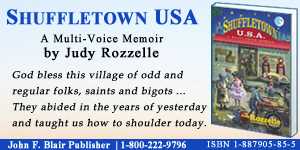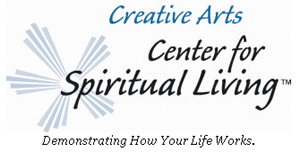There is a song that many do not hear. There is a rhythm that many do not know. It is the song of life. James Eubanks has heard this song for as long as he can recall. Eubanks was born into poverty and hard work, and he was born singing, “Hallelujah.” James Eubanks was born happy, optimistic, and curious. These three traits made him a good neighbor and a hard-working man.
“Children were born to be farm hands back then,” he says, “I remember how cold we used to get, going out to pick cotton on early mornings. But hard work quickly warmed us up.”
James Eubanks never attended school. “You didn’t need an education to follow a mule,” he said. “Me and my (eleven, six boys and six girls) brothers and sisters worked all day in the crop fields. We started work at the first light of day and didn’t quit until after dusk. By noon we were dead tired. You just don’t know how hot you can be until you are caught standing between the noon day sun and the dry dusty earth.
“We always looked forward to lunch time. Our mom would fix a pot of beans and fill an empty eight-pound lard bucket to the brim for lunch. Then she would make enough biscuits to fill another empty eight-pound lard bucket. That was lunch. Around noon someone would go down to a creek or a well and draw water for us to drink. Then we all gathered around and shared the lunch Mom had prepared. When we finished lunch, we were ready for several more hours of hoeing or harvesting.”
“Word got around about my family. We were known for our hard work and we were hired as tenant farmers at several farms around Jefferson, South Carolina. My family moved so much that when the hens heard a wagon rumbling down the road, they would sit down and cross their legs. You know, when a farm family moved, you tied the chickens legs together before you threw them in the wagon for the trip.”
“When we moved into an old cabin, we cleaned that place up like it was a mansion. Mom made a broom out of corn shucks and we scrubbed the floor with creek sand until it shined. The floor planks in some of those homes were so sparse that you could see the chickens scratching around underneath the house.”
James never learned to read and write, but he worked fifteen years in a cotton mill before moving to Charlotte to become a butcher for an A & P Grocery in the early 1960s.
“Now, I don’t mean to be bragging,” he says with a smile, “but I have had a good life. I spent a lot of time hunting and fishing; I have eaten a lot of squirrels; and I have been blessed.”
Life has been good to James Eubanks because he has been good to neighbors and many animals. Behind his home on Mt. Holly-Huntersville Road is a pet graveyard with hand-made tombstones. Here lies Ginger, Joy, Hobo, Pepper, Dusty, Sparky, Daddy Long Legs, Whitey, Gray, and Busy Britches. In the 1990s, James had a 1981 Toyota pick-up truck and whenever he got in it to go somewhere, five dogs would jump into the bed of the truck.
It is part of James’ good nature that has brought him good luck in his life and a basic rule of thumb he has always lived by is…James believes in being a good neighbor. Before the turn of the 21st Century, James and his neighbors formed a co-op. James refers to his team of neighbors as “The Clan.”
“If your hay needed harvesting, if your fence needed mending, if your barn needed work, we all got together and got it done, usually in one day,” James says. Members of The Clan were a mixed group of African Americans and white farmers. If you wanted to work with your neighbors, then you were part of The Clan. The color of a person’s skin don’t make any difference when it comes to hard work.”
One of James most rewarding friendships began with a bolt. Right after moving to the Shuffletown area, Eubanks noticed Mary Alice Abernathy wearing a large bonnet and plowing the field with an FCX Coop tractor.
“I stopped to ask about something and noticed that the plow needed a strong bolt. I fixed it with a bolt I had in the truck. On that visit I met Jesse Phillips, who worked for the Abernathy women all his life.
Jesse helped out with everything on their farm. I became friends with Jesse and stopped by often to help him out with his chores. The Abernathy women watched me like a hawk. They didn’t know me and they didn’t know what to make of me. Finally, one day, I told them they didn’t have a thing I wanted. I was just there to help out. From that day on, we were all friends.”
The Abernathy family came to the area around 1750s and built a two room log cabin by the side of the road. Their farm was made up of more than 78 acres and running it required a lot of hard work. Their father, Francis Abernathy, was the local blacksmith, farmer, veterinarian, and guidance counselor. If a family was in trouble, he would light a lantern; go on down the road to see if he could help them work through their troubles. Farmers brought him their sick animals and their plows to be mended. When he died, the three Abernathy spinsters took over running the farm. Local legend suggests that they never met a man who could build a fence as good as they could and, therefore, the Abernathy women never married.
Jesse died one day of a heart attack when he was preparing to milk the Jersey cows. It seemed natural to James that he should step in and assist the women. In the next decade he doubled their herd of cows and helped them harvest and plant their crops. He took care of them and watched over them as they grew elderly. Miss Lucy Abernathy died of cancer and Miss Lavenia died of congestive heart failure leaving Mary Alice Abernathy alone.
James and Mary Alice became fast friends. There were many similarities between James Eubanks and her father, Francis Abernathy. James also enjoyed working with metal, he cared for animals and he was a good farmer.
One afternoon, one of Mary Alice’s cats was under the hood of a car when the engine was started. “That cat’s neck was torn up when it jumped out,” says James. “We hated to see the cat like that. So we decided to fix the wound. We got one of Mr. Abernathy’s crooked needles, cut a Clorox bottle into two pieces and made the top wide enough to fit the top of the bottle around the cat’s neck. Then we sat the cat into the bottle and stuck her neck through the top half of the bottle. Once we did that, I sewed up the cat’s neck. The cat lived for more than two more years, until it got hit by a car on Mt. Holly- Huntersville Road.”
Despite his lack of education, James Eubanks is a renaissance man. He is a self-taught engineer, builder and carpenter, architect, welder, farmer and inventor. In an era when men were born into poverty and pain, James Eubanks became a student of life. One of his prized possessions is a walking stick he fashioned for Miss Mary Alice. It is a walking stick with a small hoe blade attached to the end of it.
“I had noticed that as Miss Mary Alice walked around the farm, she would dig away at weeds with the end of her cane. So, I made her a cane that was also a handy tool. The cane pleased her and she loved digging up weeds with it.”
In his time, James has designed and built wood splitters, plows and hinges. But it is his barn design that captured the attention of many neighbors. One evening when he was in his tool shed, James drew what he thought would be a good barn. “I didn’t know the dimensions, but I knew what was needed to make a good barn.” The next day, he took it to Ross and Don Tench. They laid out the dimensions and height of the barn. The men of the neighborhood co-op came together and the barn was constructed. James cast the hinges for the barn in his welding shop. Today there are more than twelve barns built to Eubanks’ design. The barns are located in Shuffletown, Long Creek, Huntersville, and Marion. Eubanks forged the hinges for each barn in his shop, doing what he readily admits is his favorite activity, working with metal.
Mike Lucas built the Eubanks barn in Shuffletown and built a new one when he and his wife, Jill, moved to Marion, North Carolina. “It is a good looking barn,” Mike says, “and it is practical.” James Eubanks could have ruled the world if he had had just a high school education,” said Mike.
In the late 1990s, Mary Alice Abernathy’s body just wore out. In her will, she left the farm to James Eubanks for his kindness and care during her lifetime.
Often, we forget the proud journey of a life, especially when it is not written down. James Eubanks was born into hard times as were most of our parents and grandparents. In these lives we find the strength of lessons learned and challenges overcome. Joseph Campbell said that every life is a hero’s tale. Certainly, James Eubanks life is a hero’s tale.
— From Ferry Tales, a monthly column by Judy Rozzelle in the Mt. Island Monitor, Huntersville, NC


